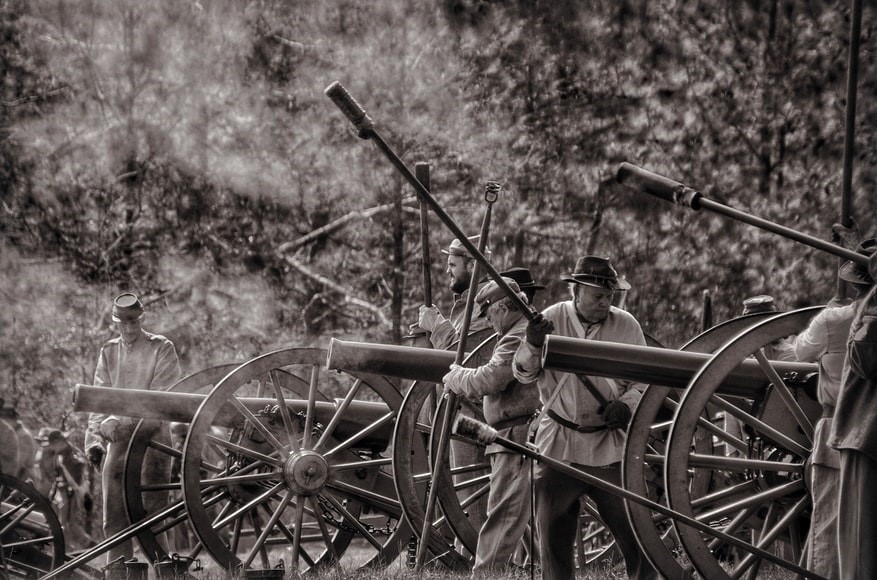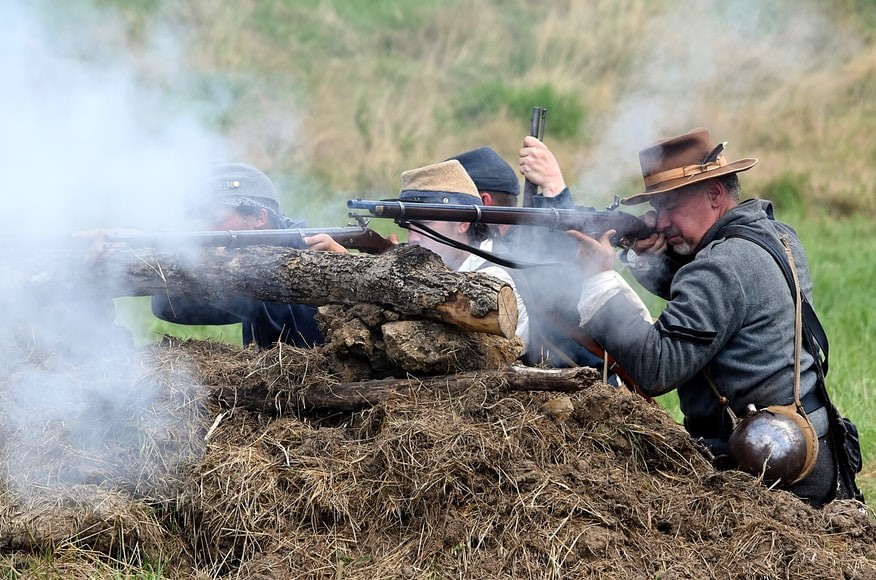This is a free essay sample available for all students. If you are looking for pre written essays for sale on the topic “Causes of the Civil War”, browse our private college essay examples.
Sadly known as one of the bloodiest series of battles in the history of America, the Civil War was the culmination of centuries of conflict over the issue of slavery. A closer look at the timeline shows a long, drawn-out succession of attempts to reach a peaceful middle ground, to no avail.
While slavery was at the heart of why the Civil War began, what were the other pressing issues surrounding it that added to the tension? What related areas of concern added to the mix that made this series of battles inevitable? These are some of the questions the author of this sample essay seeks to dig deeper into.
Preparing your own causes of the Civil War essay? Consider getting our essay writing services to help you get your essay done faster, with the help of our expert academic writers.
Major Contributors to the American Civil War
Any history buff has examined the series of events that led up to the Civil War. It is a rich yet dramatic saga of two different sides raising their causes and the many efforts to reach a compromise that would be agreeable for them, only to go to war in the end. We know that slavery was a hot topic in that day and age, but what were the major keys that unlocked one of the bloodiest battles ever fought in America? Here, I outline some major causes of the Civil War.

The Existence of Slavery
It goes without saying that the slave trade was the root cause that triggered so many other issues that magnified it and ultimately pointed to the certainty of war. The employment of African slaves in the Southern plantations to cheapen labor was the main issue of contention among the Northern states. Their perspective, which came from an experience of rapid industrialization, clashed against the agricultural South’s insistence on slave labor to improve their production.
The Contrast Between Industrialization and Agriculture
As previously mentioned, it was only the North that had industrialized. The South remained, by and large, an agricultural industry. With the kind of labor and the kind of resources they had, using African slaves was a practical consideration for them. On the other end of the spectrum, the North already had the tools and resources to streamline labor and make it work more efficiently without as much manpower. This meant that they had no use for slaves, and found them a burden rather than a help.
The Rights of the States
The states’ rights were also a topic of debate, particularly among the Southern states that were more motivated to gain better representation in government. This was heightened particularly during the establishment of the United States Constitution when the importance of human rights was mentioned. One of the reasons why they felt like underdogs is their smaller population. They are not able to accumulate as much wealth as the North, which was superior in terms of technology and manpower. The Fugitive Slave Act was one of the ways this was addressed. It accepted the counting of five slaves as three free men, which meant additional representation in Congress.
The Agenda of Growth and Expansion
America continued its journey to acquiring new territories in the West. As they manage to gain new territory, there would always be a fight for power and balance between the Northern states and the Southern states. The Southerners were afraid of losing power and their rights, so they felt that they had to find a way to regain control every time there was a shift in American territory.
The Plight of Bleeding Kansas
One of the most controversial laws passed in relation to slavery was the Kansas-Nebraska Act, which revoked the older Missouri Compromise. Passed in 1854, this Act was set in place to enable those living in Kansas to officially choose whether they would want to be one of the slave states or one of the free states. Naturally, this caused further polarization of both sides, even within the state. This was where the first battle concerning the issue of slavery occurred. The fighting continued for years, which is why the state earned the moniker “Bleeding Kansas.” It was eventually admitted as a free state in 1861.
The Election of Abraham Lincoln
Perhaps one of the real turning points in the timeline was the election of the Republican party’s Abraham Lincoln to the presidency. By association, he was known to be anti-slavery. So when he made the public announcement to abolish the practice for good, it moved the South into action.
The Secession of the 11 States
Following the election of President Abraham Lincoln was the major act of secession by the South. With an anti-slavery president at the helm of the nation, they made the decision of leaving the United States. It started with South Carolina, with ten more states following suit. Upon their exit, they formed their own country and named it the Confederate States of America. Lincoln did not recognize this and militarily forced them to come back to the Union. It was at this point that the Civil War finally commenced.
Conclusion

While the final events in the timeline surely pulled the trigger and caused the North and the South to go to war, this murderous series of battles were really a result of a long history of the conflict that was never really able to find its way to resolution. As much as it would be easy to point a finger at Lincoln or the Southern states, the issue runs much deeper than their personal agendas. At the heart of everything was a conflict of conviction and a lack of strong leadership.
FAQs
What are the 5 main causes of the Civil War?
The five underlying issues that brought America to a state of combat were the differences in conviction over the issue of slavery, the South’s consistent fear of losing power and representation, the inability to reach any solid long-term compromise between the two sides, the rash decision-making of President Abraham Lincoln in the early days of his presidency, and the disparity between the message of human rights and the continued existence of the slave trade.
What caused the Civil War?
If there was one major conflict that we could point to as the “mother” issue behind the decision to go to war, it would probably be the longstanding tension over the issue of slavery that remained largely unaddressed for centuries. When wounds remain open or improperly stitched over a long period of time, infections slowly begin to form beneath the surface. In the same way, hatred and anger simmered from both ends even despite attempts to reach a middle ground.